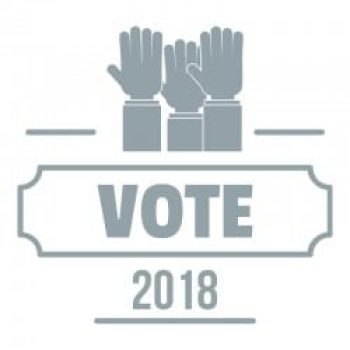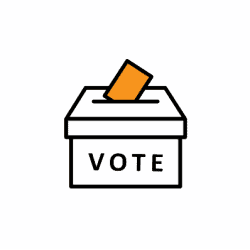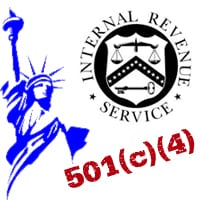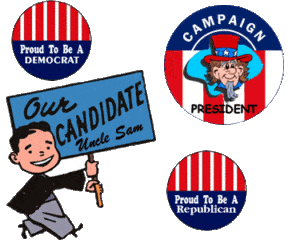November is quickly approaching. Local, state, and federal election campaigns are revving up. Nonprofits’ members, supporters, and clients are about to be bombarded with political ads seeking their vote. This presents a perfect opportunity for a nonprofit organization to assist and educate potential voters, and there are good reasons to do so.
But nonprofits must also be aware of the limitations on how they may carry out these activities. While 501(c)(3) organizations are not allowed to engage in “political activity”, they are allowed to educate their members and the general public. They are also allowed to focus on populations that don’t typically vote in order to increase participation in the electoral process.
The Restrictions
Public charities (a type of 501(c)(3) organization) enjoy numerous perks under the federal tax code. They are eligible to receive tax-deductible contributions and their income from those donations and program revenue isn’t taxable. Congress, in exchange for those benefits, places certain restrictions on public charities. For one, public charities are not allowed to engage in candidate election advocacy, in other words, they are not allowed to advocate or oppose candidates for political office. Public charities also cannot engage in a “substantial” amount of legislative advocacy (i.e. lobbying). The penalties for violating these restrictions are severe, up to and including the revocation of an organization’s tax-exempt status.
What Public Charities Can Do
Every public charity is affected by the outcome of the democratic process. Many serve vulnerable and disadvantaged individuals who are disproportionately impacted by the outcome of elections but historically have not voted at the same rate as other demographics. For many public charities, increasing their constituents’ participation in the democratic process may fall squarely within their exempt purpose. These organizations SHOULD try to increase their constituents’ engagement with the democratic process but must make sure they don’t do so in a way that favors or appears to favor a particular candidate or party.
Here are some examples of activities that public charities can engage in, along with some important considerations:
Candidate Fora
Public charities can host a forum in which candidates are invited to answer questions relevant to the charity and the general public. The forum should cover a wide range of topics. All major candidates should be invited and offered equal time. Many public charities will bring in an independent moderator to build an additional firewall against accusations that any questions demonstrate partisanship by the nonprofit. Local media personalities and journalists often make excellent moderators, as they are already attuned to salient topics.
If your organization hosts a candidate forum, make sure the questions asked of the candidates inform the audience about a broad range of topics. You should also start and end the forum by reminding the audience that your organization does not endorse or oppose any candidate or party.
Note that while you should invite all candidates if any candidate declines to attend, it doesn’t mean the forum can’t move forward. You might consider alternatives for candidates whose schedules conflict, such as written statements, or holding another forum at a later date, if practical.
Consider what format will best achieve your goal of educating the audience about important issues. For legal and practical reasons, a candidate forum should not devolve into a partisan argument or an ad hominem fight. Take steps that will prevent this – impose time limits, screen audience questions, and limit access to the microphone.
Finally, set some guidelines to deter unwanted politicking. Don’t invite political parties or PACs. Remind the candidates that the forum is not a campaign stop – and that they are not to ask for donations. Avoid stump speeches. A forum is an opportunity to educate the public – so do your best to keep it that way.
Voter Guides
As is true for a candidate forum, public charities should use a voter guide to ask questions of all candidates and make sure they touch on a range of topics. While you cannot edit a candidate’s response, you can place conditions, such as word limits, on their response. If a candidate submits a response in excess or the word limit or in violation of another guideline, ask them to revise their response or simply omit any information beyond the word limit or in violation of the guidelines.
Educating Candidates
If a candidate expresses an interest in the work your nonprofit does, you can follow up by providing literature or meeting with the candidate to introduce him or her to your programs. A guiding principle, however, is that the communication must remain strictly nonpartisan. If you send literature to one candidate, be sure to send the same to the other candidate(s) in the race. You may also invite candidates to visit your facilities, to demonstrate your importance to the community you serve. Again, be sure that the same invitation is given to all candidates.
Voter Registration Drives
A voter registration drive must be nonpartisan. Informational materials provided should be politically neutral. Never ask potential voters who they plan to vote for, and certainly don’t limit registration in a partisan way. Choose the location for your drives by focusing on areas where you expect to find populations who historically don’t vote or aren’t registered – not based on any political criteria. If you’re registering voters at an event run by another group, double check with the organizers which other groups might be attending. Consider reaching out to state or local election officials to help you identify neighborhoods or areas with low voter registration. You are allowed to focus on the areas or people you already serve.
The Mechanics of Voting
For new voters, teaching about the mechanics of voting is also allowed. Ask your local election officials whether they can bring in a sample voting machine so new voters can familiarize themselves with it. Show them a sample ballot, and if there are ballot initiatives, share them with your constituents and help them understand what is often very long, confusing language. Again, as with all of the voter education activities discussed here, make sure your explanations don’t stray into political commentary – try to stay objective!
Get-Out-The-Vote
If the people your organization serves face barriers to getting to the polls, such as physical disabilities or lack of transportation, your organization can arrange assistance to support their participation. Make sure to use nonpartisan criteria determine who to assist, and focus on areas or individuals who are actually in need of assistance.
Political engagement in the United States is on the rise. Nonprofits can and should be part of the conversation by ensuring voters are well informed and prepared to vote in November.
- Perlman & Perlmanhttps://perlmanandperlman.com/author/nancyisrael/
- Perlman & Perlmanhttps://perlmanandperlman.com/author/nancyisrael/
- Perlman & Perlmanhttps://perlmanandperlman.com/author/nancyisrael/
- Perlman & Perlmanhttps://perlmanandperlman.com/author/nancyisrael/














